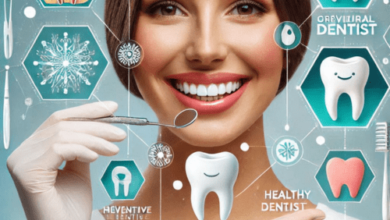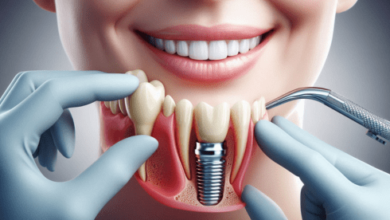Knowing How to Deal with Dental Emergencies

This guide explains what to do if you face a dental emergency.
Assess the Situation
Determine the severity of your dental emergency. Common dental emergencies include:
- A knocked-out tooth
- Severe toothache
- Chipped or broken tooth
- Loose tooth
- Abscess or gum infection
- Bleeding in the mouth
Before taking action, identify the issue you are dealing with.
Act Quickly for a Knocked-Out Tooth
If a tooth has been completely knocked out, time is essential. Retrieve the tooth by handling it at the crown, not the root. If it’s dirty, rinse it gently with clean water but avoid scrubbing. Place the tooth in its socket if possible, or store it in a container with milk or a tooth-preserving solution. To have the best chance of saving the tooth, get to the dentist within 30 minutes.
Ease Toothache Pain
If you have a severe toothache, start by rinsing your mouth with warm, salty water. Gently floss around the affected tooth to remove any debris that might be causing pain. Avoid placing aspirin on the affected area, as it can irritate the gums. Take over-the-counter pain relievers, but see a dentist as soon as possible.
Manage a Broken or Chipped Tooth
If you have a broken or chipped tooth, rinse your mouth with warm water (not hot). Apply gauze to any bleeding area and use a cold compress on the outside of your mouth to reduce swelling. Take any broken pieces of the tooth with you to the dentist.
Handle a Loose or Displaced Tooth
If a tooth is loose or out of alignment, try gently pressing it back into its original position using your finger. Avoid applying too much pressure. A dentist can use splints to stabilize the tooth and aid in healing, if necessary.
Treat Abscesses and Gum Infections
Abscesses and gum infections are dangerous if untreated, as they can spread to other areas of the body. Rinse with salt water several times a day to help with the pain, and see a dentist immediately for treatment.
Control Bleeding
For bleeding after a dental injury, use clean gauze and apply gentle pressure to the affected area. If the bleeding doesn’t stop within 15 minutes or is heavy, go to an emergency room.
Prevent Future Emergencies
To reduce the risk of dental emergencies, follow these tips:
- Wear a mouthguard when playing sports
- Avoid chewing hard foods or ice
- Maintain good oral hygiene
Seek Help Immediately
If you’re unsure of the severity of a dental issue, it’s best to seek emergency dental treatment. Some cases require immediate attention to prevent further damage.
A dental emergency can be alarming, but staying calm and following these steps will help you manage it more easily. Schedule a follow-up appointment to address any underlying problems and restore your oral health.
This post was written by a professional at Elite Dental and Orthodontics. Your Partner for Healthy Smiles at Elite Dental and Orthodontics. Elite Dental’s mission is to provide exceptional dental care that brings smiles to life. Whether you’re seeking relief from tooth pain, considering a veneer smile makeover, or require a dental implant, our experienced team is here to guide you on your journey to optimal oral health in.




